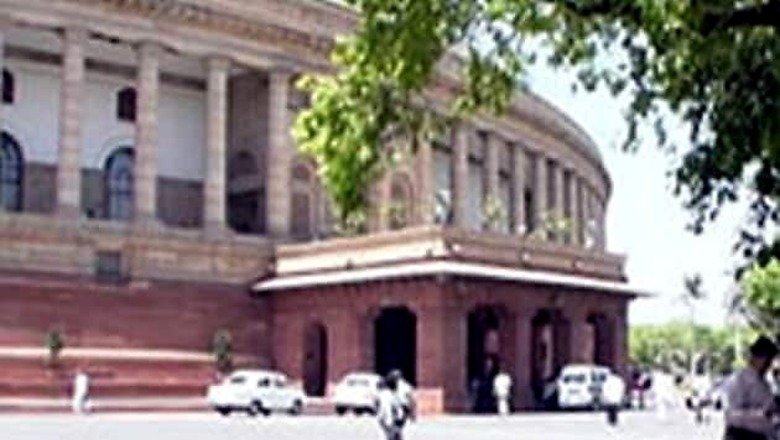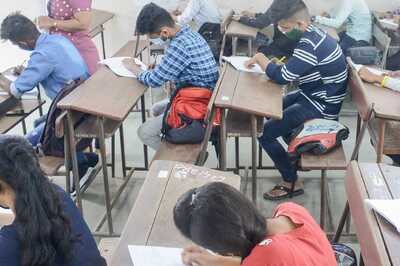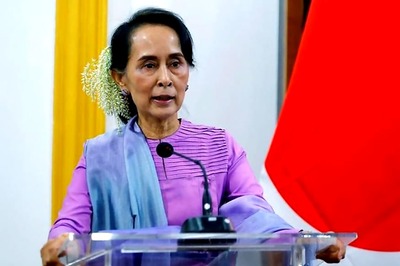
views
New Delhi: A judge who makes oral comments against another constitutional authority or individuals, would be liable for "judicial misconduct" under a Bill passed in Lok Sabha on Thursday dealing with complaints against Supreme Court and High Court judges.
The Judicial Standards and Accountability Bill, 2010, which was introduced in December, 2010 was brought to the Lower House with fresh amendments in December last year, including one which seeks to restrain judges from making "unwarranted comments" against conduct of any Constitutional authority.
According to the revised bill, any judge who makes oral comments against other constitutional authorities and individuals will render himself/herself liable for judicial misconduct.
Making a brief reply amid pandemonium to the debate on the Bill which took place during the Winter Session, Law Minister Salman Khurshid said the legislation seeks to set up a mechanism to inquire into complaints against a judge of the Supreme Court or the High Court.
He said the bill aims at striking a balance between maximising judicial independence and laying down accountability at the same time for members of the higher judiciary.
In his detailed reply tabled in the House amid din over Telangana, Khurshid said "the passage of this Bill shall be a major achievement in establishing systems and procedures which will be far superior and practicable to that provided for in the Judges Enquiry Act."
Khurshid referred to some members raising the issue regarding appointment of judges and said the current system of selection of judges has been mandated by the Supreme Court in its judgement.
He said in the present system, judiciary has major say in judicial appointments.
"The executive endorses the recommendations made by the Collegium both at the level of the High Courts as well as the Supreme Court. This system which deprives the executive to have a meaningful participation as well as sharing of information in its possession is required to be reformed," Khurshid said.
He said this can be achieved only if the executive and the judiciary have a consultation process. "...representations have been received from various quarters in the past to restore the balance between the executive and the judiciary in the selection and appointment of judges.
"There has been a suggestion to set up a National Judicial Commission...We are anxious to put in place a system that would ensure that best and brightest are elevated to the bench and in a transparent manner...," he said.
The Bill seeks to repeal the Judges Inquiry Act, 1968 but retain some of its key features like power to Parliament to impeach a judge of the Supreme Court or the High Courts, Khurshid said.
At present there is no legal provision for dealing with complaints filed by the public against the Judges of the Supreme Court and the High Courts.
The judiciary had adopted resolutions for declaration of assets by Judges and "Restatement of values of Judicial Life". However, there is no law that requires the judges of the Supreme Court and the High Courts to declare their assets and liabilities and also there is no statutory sanction for judicial standards.




















Comments
0 comment